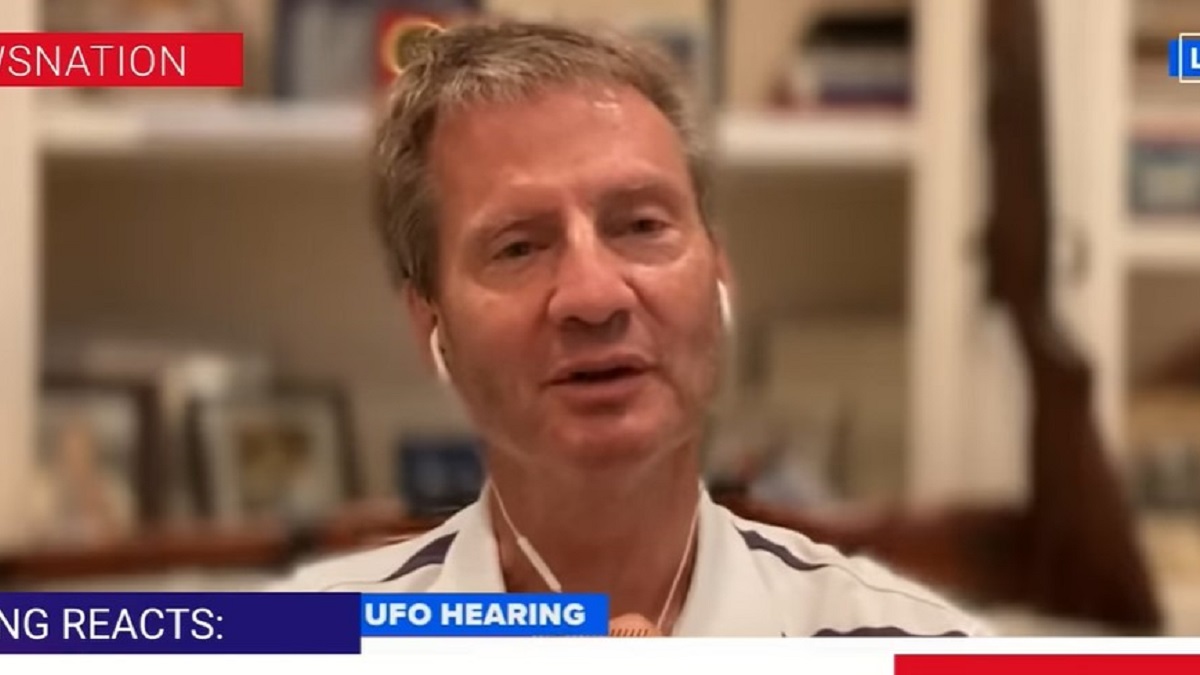
Rep. Tim Burchett alleged that a UAP witness dropped out of the hearing after allegedly receiving a phone call from the Pentagon. Pic credit: The Hill/YouTube
Representative Tim Burchett alleged that three UAP witnesses scheduled to testify at the recent House Oversight Committee hearing on UAPs dropped out. At least one of the witnesses refused to show up after allegedly receiving a call from the Pentagon.
Burchett, a member of the subcommittee investigating UAPS, made the allegation while speaking with The Hill reporters Briahna Joy Gray and Robby Soave (see video below).
Witness allegedly caved in to Pentagon pressure
The representative from Tenessee said they scheduled six witnesses, but only three showed up. One of the witnesses allegedly backed out after receiving a call from the Pentagon.
Another dropped out after citing affiliation with NASA, but the agency denied the person worked for them.
Burchett speculated about the nature of the witness’s alleged affiliation with the agency, but it was unclear why they did not want to testify.
A third person also backed out for some unspecified reasons.
However, The Hill implied that Burchett suspected all three witnesses dropped out due to pressure from the Pentagon.
Media reported that only three witnesses would testify
Gray and Soave noted that media outlets had reported ahead of the hearing that only three witnesses would testify.
They did not report that the House Oversight Committee scheduled six witnesses and that three dropped out allegedly due to pressure from the government.
Even after the media finally revealed that Congress scheduled six people to testify, they did not name the three who dropped out.
Gray argued that if the media had reported that witnesses were under pressure to drop out, it might have put the people pressuring them on the spot and forced them to back off.
Congressional hearing did not uncover enough new info.
Gray noted that the belated revelation that Congress scheduled six witnesses but only three showed up could be a face-saving tactic after viewers complained that the hearing did not uncover new significant information.
Gray and Soave agreed that Grusch did not share new evidence from firsthand sources.
He only repeated the unsubstantiated allegations he made in the past and continued saying that he could not reveal his sources or share crucial evidence in an open forum due to safety concerns.
Grusch defended his refusal to reveal the identity of his sources or share evidence by claiming that people suffered reprisals due to efforts to protect government secrets.
Who are the Pentagon officials who pressured the witnesses?
Soave then raised questions about the identities of the Pentagon officials who called the witnesses and allegedly pressured them not to testify to Congress.
He argued that Congress should make the witnesses share the names of the officials who called them.
“Who is the person who called you or emailed you and said we the Pentagon or we the NASA don’t want you to testify,” Soave inquired. “Who is that person? That person is not entitled to privacy.”
“Who is the Czar of silence?” he asked.
Where is the smoking gun?
Gray and Soave also expressed concerns that Grusch repeatedly said he could only share crucial evidence in a closed forum.
Thus, while regaling the public with sensational allegations, he continued leaving people in suspense by concealing substantiating evidence and refusing to name his firsthand sources.
Gray added that the persistence of a wall of silence regarding evidence raised a red flag. Sensational whistleblower allegations have no factual basis as long as we don’t have evidence.
We need to see the smoking gun to establish the veracity of Grusch’s claims, Gray and Soave concluded.
